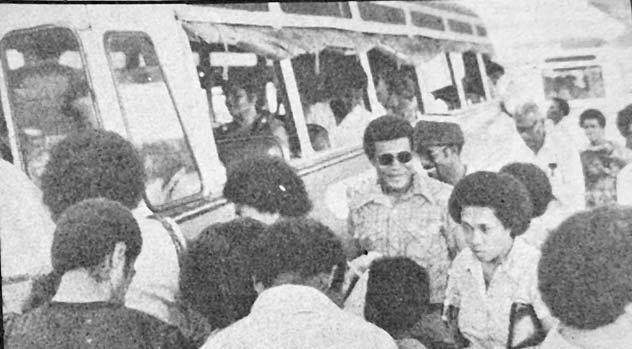Five hundred buses were to be taken off Viti Levu roads in May 1980 if the Transport Control Board (TCB) failed to permit bus fare increases of at least 35 per cent.
This bus strike threat was reported in The Fiji Times on Wednesday, May 28, 1980.
The strike by bus companies, decided at meetings held in Suva and Lautoka, was to have happened if the TCB further deferred a decision on an application for fare increases submitted by bus owners.
The TCB was supposed to give its decision at its headquarters in Valelevu in the afternoon of May 28, at 2pm.
Bus industry spokesman Pramendra Pande said a decision might not be ready by the 2pm deadline.
The possibility of a strike threatened thousands of children and workers who were to miss classes and work.
Mr Pande, secretary of the of the Suva Bus Operators Association, said the strike would involve 46 companies owning about 500 buses.
“Many of them are on the verge of bankruptcy,” he said.
“We applied for the increases in February, but the TCB said it wanted more information.
“It adjourned until May 23 (1980) and adjourned again until today, and all this time the operators have been losing money.”
At Tavua, the Pandit Transport collapsed because it was unable to afford the cost of getting two buses recertified for work, Mr Pandit said.
At Ba, Balmukund Transport was taken over by Chimanlal Transport and Ram Dwarka Transport was mired in difficulties.
Mr Pande said the question of a strike by Labasa operators was deferred.
The operators turned their accounts over to TCB investigators and they pinned a lot of hope on a report written by the Controller of Transport, Andrew Hemming and Dr David Maynard of the University of the South Pacific.
The report said bus owners needed fare increases of up to 35 per cent and that without them the “industry would be faced with widespread liquidity problems and the possibility of wholesale bankruptcy”.



